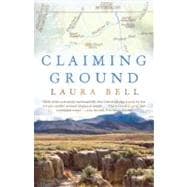
Note: Supplemental materials are not guaranteed with Rental or Used book purchases.
Purchase Benefits
What is included with this book?
Laura Bell’s work has been published in several collections, and from the Wyoming Arts Council she has received two literature fellowships as well as the Neltje Blanchan Memorial Award and the Frank Nelson Doubleday Memorial Award. She lives in Cody, Wyoming, and since 2000 has worked there for the Nature Conservancy.
| Migration | p. 3 |
| Coon Creek Camp | p. 17 |
| McCullouch Peaks | p. 22 |
| Trailing | p. 28 |
| Burnt Mountain | p. 46 |
| Hidden | p. 61 |
| Medicine Wheel | p. 72 |
| Highway | p. 77 |
| Murdi | p. 87 |
| On the Diamond Tail | p. 94 |
| Gathering | p. 113 |
| Shell Creek | p. 134 |
| Home | p. 143 |
| Leaving | p. 156 |
| The Stone School | p. 165 |
| Jenny | p. 185 |
| Moving Camp | p. 200 |
| Heart Mountain | p. 216 |
| Claiming Ground | p. 226 |
| Table of Contents provided by Ingram. All Rights Reserved. |
The New copy of this book will include any supplemental materials advertised. Please check the title of the book to determine if it should include any access cards, study guides, lab manuals, CDs, etc.
The Used, Rental and eBook copies of this book are not guaranteed to include any supplemental materials. Typically, only the book itself is included. This is true even if the title states it includes any access cards, study guides, lab manuals, CDs, etc.